WHY we need you in Vietnam
- Although improving, around 10% of the population in Vietnam sits below the poverty line
- In 2016 around 30% of the rural population in Vietnam did not have access to clean water
- Although Vietnam is doing better then some South East Asian countries, it does still suffer from a malnutrition problem in children below 5 years of age
- 24.2% of women in Vietnam are believed to have anaemia, and around 5.5% of men have diabetes
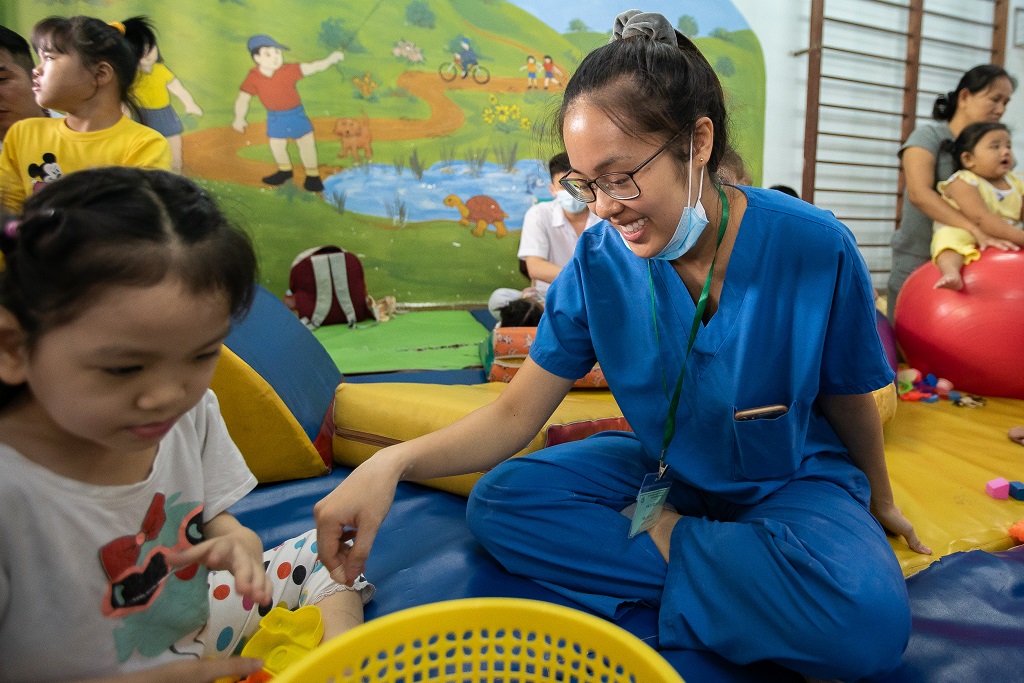
HOW can you help?
- This volunteer project is best suited to pre-medical and medical students, aiming to gain valuable experience in a real life hospital setting.
- Shadow local doctors, nurses and medical professionals in a goverment hospital.
- You may be able to observe in the physiotherapy department, and children’s ward
- Interact and communicate with the local doctors for a benefical cultural exchange.
WHAT you can do?
- Shadow medical professionals such as nurses, doctors, and specialist therapists
- Learn more about overseas healthcare systems
- Gain valuable experience or pass on skills and practices from back home
- Observe staff in the acupuncture and occupational/physical therapy departments.
Why Involvement Volunteers International?
- Non Profit Organisation & Charity
- Over 30 Years Expertise Globally
- Low Program Fees - From US$295
- Excellent Safety Record, In-Country 24/7 Support & Emergency Assistance
- 1 Application Fee - Multiple Countries

PROJECT NAME: MEDICAL VOLUNTEERING
LOCATION: HO CHI MINH, VIETNAM
START DATES: WEEKLY (SAT/SUN ARRIVALS)
ACCOMMODATION: VOLUNTEER HOUSE (SHARED ROOMS)
MIN DURATION: ONE WEEK
MIN AGE: 18+
SPECIAL REQUIREMENTS: MEDICAL PROFESSIONALS OR STUDENTS, Criminal background check required

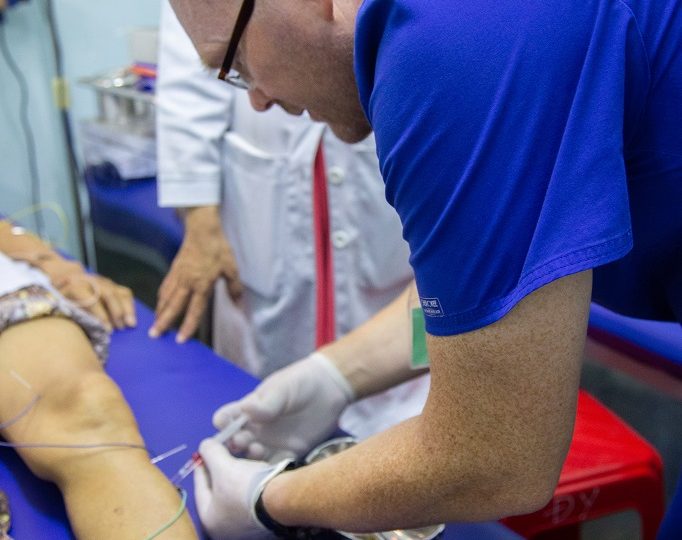
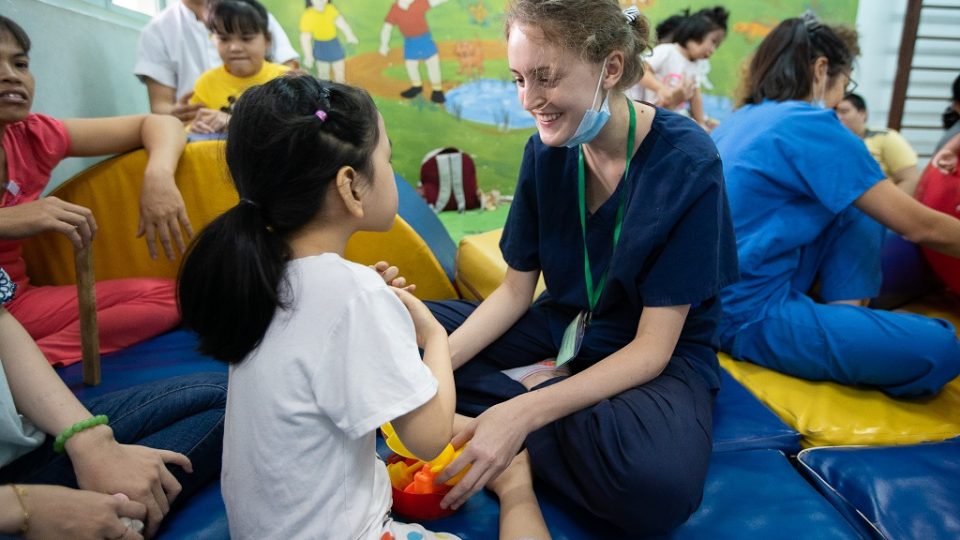
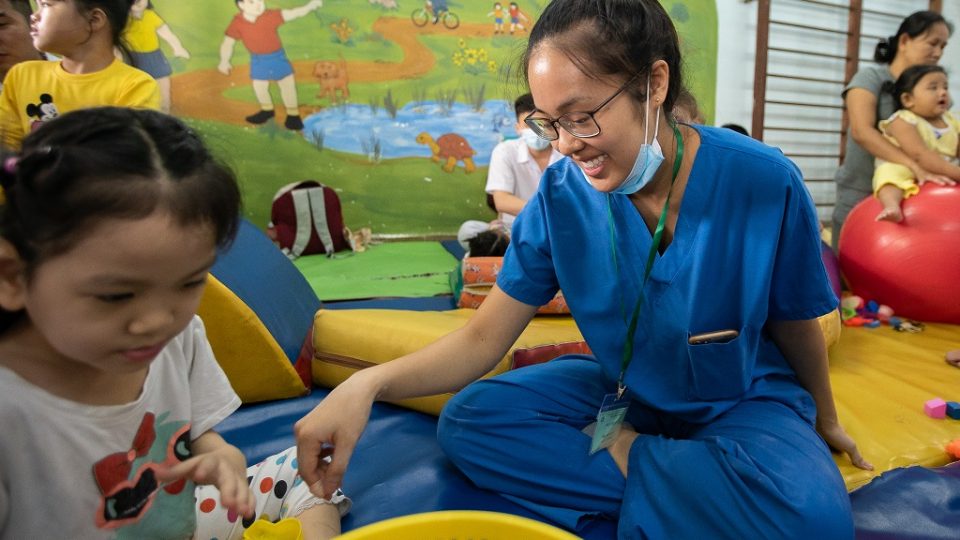
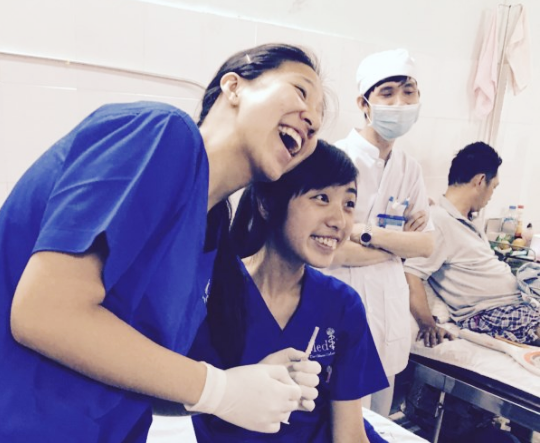
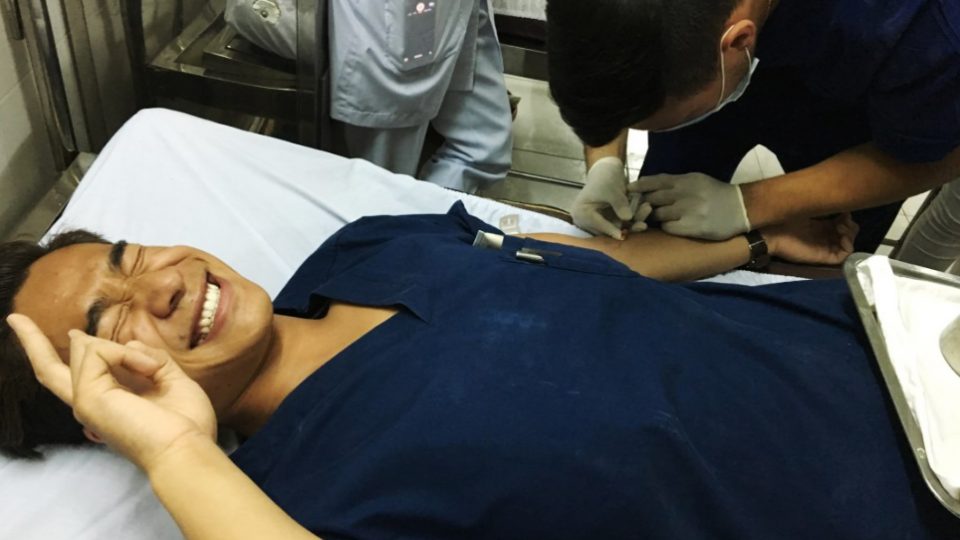
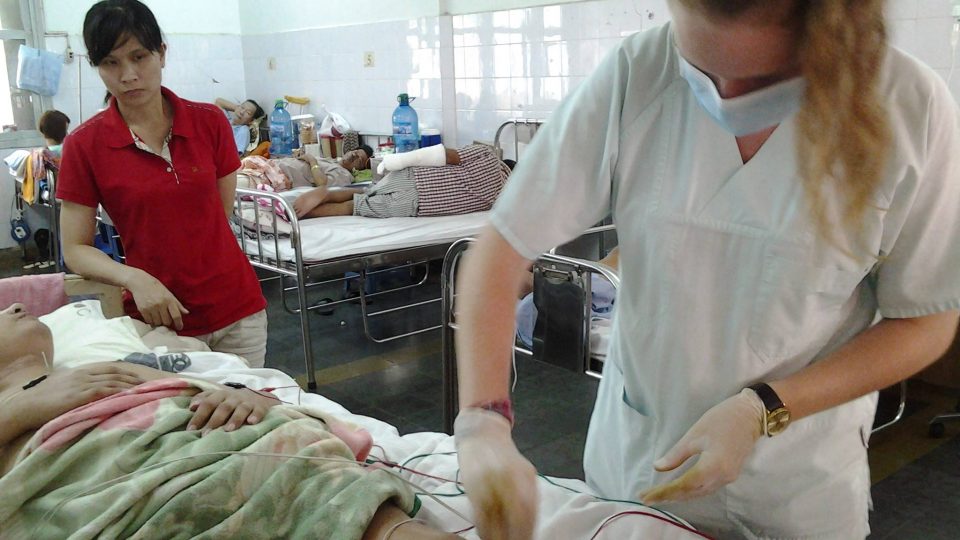
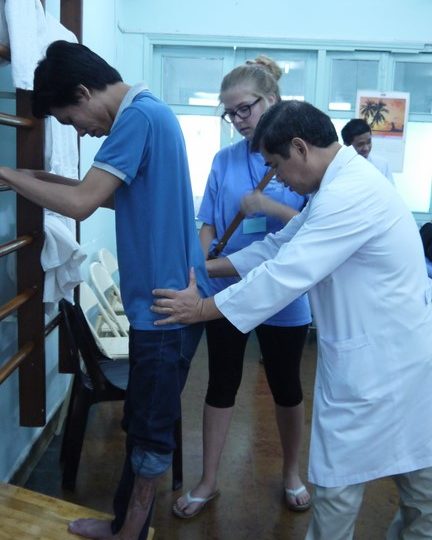
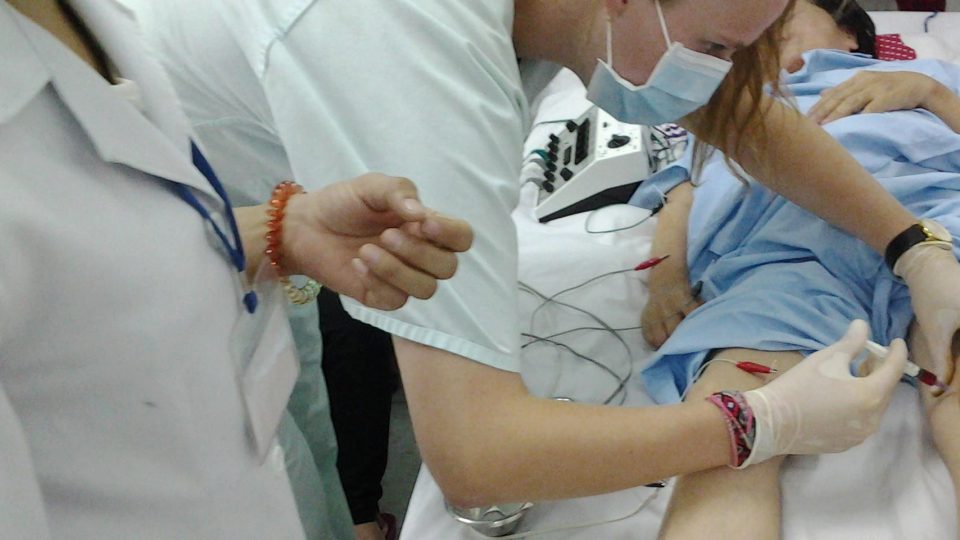
Overview
This program operates within a government-managed hospital, dedicated to serving the Ho Chi Minh community. Central to this project is the process of observing, documenting, and analysing, given that it is primarily a hands-off experience.
It’s crucial to emphasize that these institutions are bound by government regulations, preventing international participants from independently carrying out tasks. Hence, this project is most suitable for pre-medical or medical students aiming to gain deeper insights into the Vietnamese healthcare system.
Participants will have the opportunity to shadow nurses, doctors, and therapists. Depending on their profile and availability, daily responsibilities may include preparing medication, measuring blood pressure, providing basic triage, and offering wound care.
Placement within the hospital depends on both the hospital’s schedule and your background, with possible departments including Anaesthesiology, Brain Injury, Mental Health (subject to limitations), Rehabilitation/Occupational therapy, Orthopaedics, Pharmacy (proficiency in Vietnamese required), Speech therapy (proficiency in Vietnamese required), Physiotherapy, Prosthetics workshop, Radiology (Ultrasound), Surgery (spine surgery, skin grafts, joint surgery), Traditional Medicine, Geriatrics, and Internal Medicine.
There may also be opportunities to observe staff in the acupuncture and occupational/physical therapy departments. While it’s worth noting that the English proficiency of placement staff may vary, you will always have the support of an English-speaking coordinator from the local team. Participants are encouraged to engage with medical issues and seek guidance from the staff.
Your Role – General Information
One of the most rewarding aspects of working in healthcare or the medical field is the chance to make a positive impact on the lives of the local people in this remarkable city, even within a short timeframe. Regardless of your role’s demands, the medical field provides an outlet for your desire to assist others and contribute to the community. In this program, you’ll require boundless patience, energy, and a strong sense of responsibility and accountability while assisting patients with health issues.
Additionally, your general duties encompass:
- Shadowing, observing, and aiding the hospital’s daily operations.
- Assisting patients/residents under the close supervision of attending doctors/nurses.
- Observing local doctors/nurses during operations and medical procedures.
- Witnessing the diagnosis and treatment of patient illnesses conducted by the doctors/nurses on duty.
- Participation in basic triage, wound care, blood pressure measurement, and medication preparation.
- Involvement in healthcare campaigns, if applicable, at local schools or communities to enhance health awareness among children.
- Engaging in the hospital’s day-to-day activities.
Please note that your specific activities during your hospital stay may vary based on your background and experience.
Meanwhile, remember that you are exploring this place from a different perspective, so throughout your stay, you are expected to adhere to all stated rules and regulations and keep the following considerations in mind. These guidelines are implemented for your safety during your stay with us.
During the Medical Placement:
- Work for a minimum of five (5) hours a day at the placement.
- Wear a medical scrub during working hours, either bring one with you or rent one at the accommodation upon arrival if available.
- Punctuality is essential, so always arrive at the hospital prepared.
- Display patience and kindness while working with patients of varying medical conditions.
- Maintain a composed and considerate demeanour in diverse situations.
- Be attentive to patient care, diagnosis, and treatment.
- Handle hospital and medical equipment with care.
- Show empathy and care to patients as if you were their family.
- Be flexible regarding changes in time and schedules and respect advice from your local program coordinator.
- Always be respectful of local staff, fellow participants, patients, and hospital personnel.
- Adhere to the hospital’s rules and regulations.
- Familiarize yourself with the hospital’s medical protocols, procedures, and guidelines.
- Collaborate closely with your local program coordinator and hospital staff.
Please note that there is an extended lunch break, as locals typically rest from 11:00 am to 2:00 pm. Additionally, the specific rules and regulations will be further discussed by the local staff or the Country Manager a day after your arrival.
Please be aware that this program does not run during public holidays. However, you can partake in local celebrations or explore alternative programs like the Food Shop Program. Please communicate in English throughout the program.
*During the Lunar New Year and other holidays, a special program may be run.
Location
Ho Chi Minh City (formerly Saigon) is home to some 6 million people, most of whom you will see at some point during your stay as they whiz around town on their motorbikes. The city’s Tan Son Nhat Airport lies 7km north west of the city centre and is the most popular arrival point in Vietnam for international travellers. As well as long haul arrivals there are many flights to HCMC from within Asia, especially from Bangkok and Hong Kong.
Project Tasks
- Gain insight into the Vietnamese healthcare system and practices
- Observe and shadow local medical professionals at a hospital in Ho Chi Minh
- Broaden your perspective of overseas medical care and treatments
Food & Accommodation
All accommodation and meals are included in the cost of the programs. All volunteers are expected to be environmentally aware and to use all resources with restraint, especially water, paper and electricity. You will be expected to clean up after yourself, and to play your part to keep the accommodation neat and organized.
In Ho Chi Minh City, the accommodation is in a volunteer centre which is located on a college campus. You will share the rooms with fellow participants, but be in close proximity with local students. This allows a really nice cultural exchange and bonding. Rooms are dorm-style with 6-8 people per room. Rooms are well equipped with air conditioning, and good sized single gender bathrooms, clean and functional. Internet access is available at the accommodation and there are various internet cafe’s nearby.
3 good meals are provided every weekday during your project, with 2 meals on the weekends (breakfast & dinner). Bottled water is easily available in Vietnam and volunteers should budget approx US$1 per day. There is also filtered water available at the campus.
You will be eating local Vietnamese dishes, with predominantly rice at most meals. The Vietnamese cuisine is known for its fresh flavours, soups and stir-fries. There may also be some western dishes such as spaghetti and sandwiches.


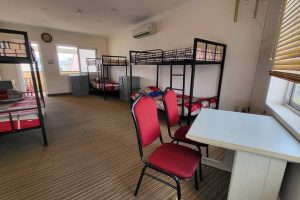

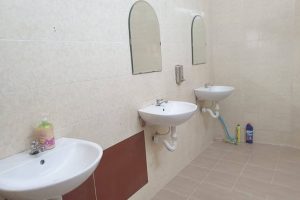
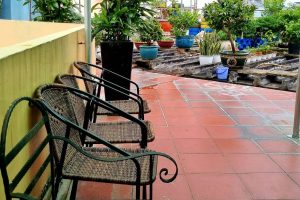

Specialty
Projects
- Medical Hospital
- Cultural Orientation Week
-
1 Week - $465
-
2 Weeks - $625
-
3 Weeks $915
-
1 Month - $1225
-
2 Months - $2195
-
3 Months - $3290
What's Included
-
Accommodation
-
Meals
-
Airport Pickup
-
Local Transportation
-
1 Day Orientation
-
24/7 In-Country Support
-
Project Materials & Equipment
-
Pre-departure Expert Advice
-
Preperation Tools & Checklists
-
Certificate of Completion
- Application fee is one off per person (unlimited placements)
- Click Here to convert the below prices to your local currency
- Discounts may apply if travelling in a pair or group!
- All credit card /international fees included in below pricing! 🙂
Testimonials...



FAQ
In most cases, you’ll need an established medical background – studying on a pre-medical track, medicine, nursing, pharmacy, occupational/physical therapy, or working in a relevant field. Those without a medical background but with other healthcare related interests, are encouraged to apply, highlighting how your background applies to the project
- Accommodation
- 3 meals p/day weekdays / 2 meals p/day weekends
- Arrival airport transfer (Sat/Sun arrivals)
- Filtered drinking water, coffee & tea
- 1 day orientation
- Daily transportation to project
- In country 24/7 support & emergency assistance
- Fundraising support
- University course credits (where applicable)
- Certificate of Completion
- Airfares
- Travel Insurance
- Tours, Souvenirs & spending money
In Ho Chi Minh, volunteers are encouraged to take up the 1 week introduction to Vietnam to ease you into the lifestyle and get to know the city and it’s facilities and everything required to make your stay comfortable. These start on every 1st and 3rd Monday of every month. You may choose after the first few days to move straight into your chosen volunteer placement.
If you prefer to move straight into your volunteer without the orientation week, you’ll still have plenty of support. When you first arrive you may have to spend one or two days with the program coordinator aligning you strengths and interests within your chosen program. From there, you will need to ensure you are taking into account factors such as local customs, business practices and resources available and to keep an open and positive mind.
On your first Monday, you will join our orientation day, to familiarise yourself with your new surroundings, as well as local culture. Your project will continue as usual from Tuesday onwards.
Schedule
- Welcome meeting, House rules, Setting Expectations, Health and Safety Advice and handling of documents.
- Vietnamese Do’s and Don’ts, Vietnamese Culture Lesson and Local Language Lesson.
- Tour around the campus accommodation and local area; where to find local shops and arrange a sim-card if necessary.
- Lunch
- Activities with local students and more
Programs begin every Monday, and volunteers are required to arrive the day prior, for orientation before the project. Your accommodation on the Sunday is included in the program fees.
A free airport pickup is included when arriving to Tan Son Nhat International Airport (SGN). You must arrive between 06:00 – 22:00 on Saturday or Sunday.
If arriving outside the pickup times you can book a private transfer and any extra nights for an additional fee.
If arriving on Saturday, you will need to pay for an extra night’s accommodation, or arrange your own accommodation for the night.
Alternatively, if arriving early you could wait at the arrival’s terminal for the pickup time, book accommodation at the airport and meet us during the pickup times or make your own way to the project (we will advise on how to do this).
From the airport to the Ho Chi Minh accommodation, it takes 20 minutes by taxi. From the airport to the Phan Thiet accommodation, it takes 5 hours by public bus, and to the Mekong Delta around 4 hours by public bus.
Monday
FIRST WEEK: The morning starts with a meeting with our team, Vietnamese do’s and don’ts and handling documents. We will provide a tour of the campus and its surroundings where you can find facilities such as ATMs, restaurants, post office, swimming pool, gym, coffee shop and supermarkets. Having lunch at the college. This is followed by Vietnamese Language, and Vietnamese Cultural lessons and introduction sessions about projects. The afternoon will be filled with family games and dinner, which will give you a chance to get to know others.
Tuesday to Friday
At the beginning of your placement (Tuesday) you will start with a full introduction to the hospital. You will also discuss your upcoming role, as you shadow and observe local medical professionals in a variety of settings throughout the hospital in Ho Chi Minh. You may have opportunities to visit different departments, follow doctors, nurses, and therapists and participate in basic triage, wound care, blood pressure measurement and medication preparation.
*** Please note that there will be a long break in between at lunchtime.***
***This schedule can be changed and/or amended depending on weather conditions, local conditions and unforeseen circumstances.***
*Please be aware that transportation for projects during the week is only provided via bus (public transport). If any participant would like to use a taxi instead, they can do it at their own expense. Our team will assist in getting taxis if they prefer to do so.
The volunteer working week is generally Monday to Friday from 9:00am – 4:00pm with weekends free to relax and explore your local surrounds. Our ground operators will help you organize additional trips with special (non tourist) rates which can be paid directly in local currency.
Within Ho Chi Minh City…
As a large city, Ho Chi Minh has a lot to offer from shops to Vietnamese water puppet shows. Here are a few suggestions:
Backpacker street
Bui Vien Street is the main street in Ho Chi Minh City, also called ‘backpacker street’. There are many cheap restaurants, bars, souvenir shops, massage parlours, markets, tour agencies and hotels/hostels. This is a great place for tourists to shop, dine, entertainment and to party!
Landmark 81
Landmark 81 is the tallest skyscraper in Southeast Asia. It towers over the rest of Ho Chi Minh’s buildings and has incredible views form the top. Not only that, it also has an ice rink, virtual reality game, restaurant and shops!
Bitexco tower
Another place to go for a great view of the city. There is an observation deck (Saigon Skydeck) open daily and offering panoramic views of Ho Chi Minh City. From floors 50 to 52, there are more entertainment facilities, including a fine dining restaurant and bar/nightclub.
Dam Sen cultural park and Water Park
Fun for adults as well as kids, this water park is guaranteed to get you smiling! Plus, it also has some lovely gardens to walk around too. There’s animals, musical shows and restaurants too, making it a fun day trip.
Thien Hau temple
Thien Hau Temple is a beautiful Chinese temple, situated in district 5 of Ho Chi Minh city. It is dedicated to Thien Hau, (also named the Lady of the Sea). Inside there are many intricate carvings, statues and paintings, a very pretty and atmospheric place to visit.
Vietnam Quoc Tu pagoda
The Quoc Tu Pagoda is located in District 10 of Ho Chi Minh City, and is another interesting temple to explore, with its lovely incense smells, colourful statues, murals and shrines. It’s one of the tallest pagodas in the city with 7 floors. Usually only the first and second floors are open, but they open up the third and seventh floor to visitors every 15th of the month.
Monkey Island
A couple of hours out from the city is ‘Monkey Island’, also known as Can Gio Island. This huge 80,000 hectare nature reserve contains mangrove trees, water coconut forests, and yes- monkeys! Hundreds of them live wild here and they will be sure to say hello to you- just be sure not to bring food with you, they are pesky little creatures!
Ba Den mountain (The black virgin mountain)
The Ba Den Mountain trail takes you through lush jungle, mountain streams and caves, before reaching its rugged top. You can also take a cable car up to the top to see some wonderful views from above, sometimes from above the clouds!
Outside of Ho Chi Minh…
Mekong Delta
The Mekong Delta River consists of swamps, islands, Khmer temples and the local floating markets. There are many small villages situated along the river front. It takes 2-4 hours by bus from Ho Chi Minh. Float on a traditional boat, through the jungle, swamps and floating markets to get a real feel for the way of life here.
Vung Tau beach
If you fancy a beach trip, only a couple of hours from the city is Vung Tau beach. There are 4 beaches in this town but try Pineapple beach for calm waters, which are great for swimming and getting away from the more crowded Front beach. There is also a culture and ecotourism park here which has rides and other outdoor activities to have a go at.
Mui Ne beach
Taking around 5 hours by bus or 4 hours by train (from Ho Chi Minh), this is a long sandy beach, lined with palm trees. There are many restaurants, shopping venues and luxurious resorts along the seafront, as well as a fishing village (great for photographers). It’s also a popular place to kitesurf.
Da Lat
Located high in the mountains, Da Lat is pleasantly much cooler and is surrounded by hills, pine forests, lakes and waterfalls. Close to the town is Datanla Falls, where you can walk to see a pretty waterfall (for the adventurous you can try water abseiling). You can also visit Elephant Falls, go tobogganing or just enjoy the beautiful jungle scenery.
Nha Trang
Nha Trang is a busy beach resort with a great nightlife, located along the South-central coast of Vietnam. There is a long stretch of white sand and palm tree lined beach, as well as many island hopping tours to gorgeous islands. This is a great place to go and enjoy some nightlife.
Hoi An
Hoi An, along the Centre of Vietnam’s coastline, is a very pretty town, known for its lanterns and its Japanese covered bridge. Although popular with tourists, the town still feels very authentic. There are many French architectural buildings, markets, nearby beaches and colourful lantern stalls to explore. This lively town also has a very relaxed and romantic vibe.
Phong Nha-Ke Bang National Park
A UNESCO Heritage Site in central Vietnam, Phong Nha-Ke Bang National Park hosts the largest cave in the world (Son Doong). There are also many other stunning caves to explore, on top of lush jungle, mountains, lakes and native wildlife. This is an adventure lover’s paradise, with the views you can get here being absolutely stunning.
Hue Ancient city
There are plenty of things to do in beautiful Hue, central Vietnam. This is a great place to explore temples, as there are many around. A Visit to the Tombs of the Ancient Emperors will take you around 19th and 20th century tombs, statues and carvings, with stunning backdrops of the countryside. Other popular places to visit are the Citadel, the Imperial City and the To Mieu Temple complex, all colourful and intricate temples.
Hanoi (Capital City)
Hanoi, the capital of Vietnam, has a rich culture and is known for its Southeast Asian, Chinese and French influence, as well as it’s antient architecture. Located in the North of Vietnam, you can explore the old quarter, watch a traditional water puppet show, wander through the maze of streets or visit some of the many museums.
Halong bay
Easily done as a day trip from Hanoi, Halong Bay is known for its emerald green waters and giant limestone imposing cliffs. Hire out a traditional junk boat and cruise through the beautiful scenery. Or hire a kayak and explore the many different and colourful caves as you go!
Sapa
Sapa is a stunningly beautiful part of Vietnam, popular with trekkers. For miles you will see green rolling hills, mountains and rice paddies. Explore this beautiful area, stopping in the small villages as you go for an authentic experience. You can reach Sapa by an overnight train from Hanoi, taking 8 hours (or 6 hours by direct bus).
Ninh Binh
Ninh Binh’s surrounding countryside is absolutely stunning and a great place for those who love the outdoors. Take a trip to Tam Coc, which is similar to Halong Bay. Drift through big limestone cliffs and bright yellow and green rice paddies. There are many things to do in this area from the Mua Cave, Bich Dong Pagoda, Bai Dinh Temple, a nature reserve and boat trips.
- In most cases, you’ll need an established medical background – studying on a pre-medical track, medicine, nursing, pharmacy, occupational/physical therapy, or working in a relevant field.
- Those without a medical background but with other healthcare related interests, are encouraged to apply, highlighting how your background applies to the project
- You will need to submit copies of your qualifications (medical study transcripts) and CV/Resume.
What to bring
- Blue Scrubs (any shade)
- Closed toe shoes (no flip flops allowed)
For information on holidays and any programs affected, please see the following link: VN – Holidays – All Programs
Vietnam’s history is one of war, colonization and rebellion. Less than forty years since the savagery and slaughter of the American War, this resilient nation is buoyant with hope. Few countries have changed so much over such a short time as Vietnam. The speed with which Vietnam’s population has been able to put the bitter events of its recent past behind it, and focus its gaze on the booming future is incredible.
However, there are broad regional variations in the distribution of poverty. The regions with the highest relative poverty rates include the north-west, north-central, central highlands, central coast and north-east. But in terms of absolute numbers, more poor people live in the north-central and north-east regions, in the Mekong Delta and central coastal regions, which are home to seven out of 10 of Vietnam’s poor people.
Volunteers have the opportunity to work in medical institutions caring for children and young people affected by Agent Orange, or in schools and community clinics looking after mentally disabled children. Volunteer work is varied and dependent on the institution where the volunteer is placed.
The weather in Vietnam can vary form North to South, with tropical and temperate climates. March to April is one of the best times overall, to visit the whole country, although Vietnam is a year-round destination.
June to August are the summer months and very hot and humid in Northern Vietnam, whereas this region experiences cold winters (as low as 4 degrees). Southern Vietnam is generally pleasant year-round but does have a rainy season from June to November. February to August is the best time to visit central Vietnam, as it gets hit with heavy rains in the wet season.
Vietnam has one of the oldest cultures in South East Asia, creating a rich history with ancient traditions dating back thousands of years. It also has a large Chinese influence. Elders are very well respected in Vietnamese culture, the older you are, the more respect is shown to you. ‘Saving face’ is a concept shown by most Vietnamese people and is thought of as extremely important in their culture. This means that if you feel angered or annoyed by someone, you do not show it and remain respectful. If you lose your temper/ are rude, then this is seen as losing face and therefore a loss of reputation and self-respect.
Vietnamese is the most widely spoken language, other languages include Chinese, Khmer, Cham and tribal dialects. Buddhism, Taoism, and Confucianism are the main religious beliefs in Vietnam, and you will find many temples dotted around the country. You will often see the local people giving fruits and burning incense to give as offerings.
30 Years Non Profit Experience
IVI is an Australian charity & non profit organisation founded in 1989 and is one of the pioneers of overseas volunteering successfully placing over 20,000 volunteers globally.
Affordable Volunteer Travel
Safe & Responsible Projects
Work Experience & University Credits
Check out this amazing blog with step by step info on how to raise funds for your overseas volunteer experience to help maximize your impact abroad. Guide to Fundraising
Weekends & Extra Tours

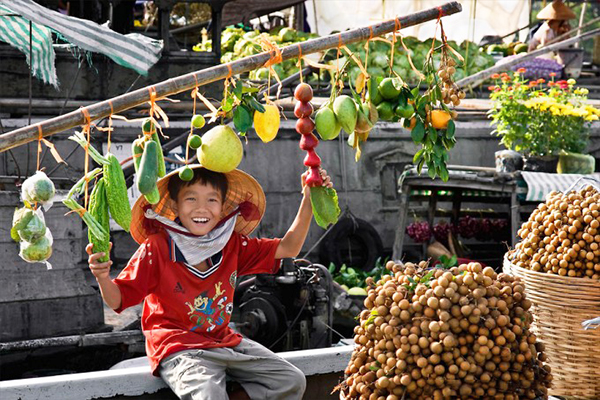

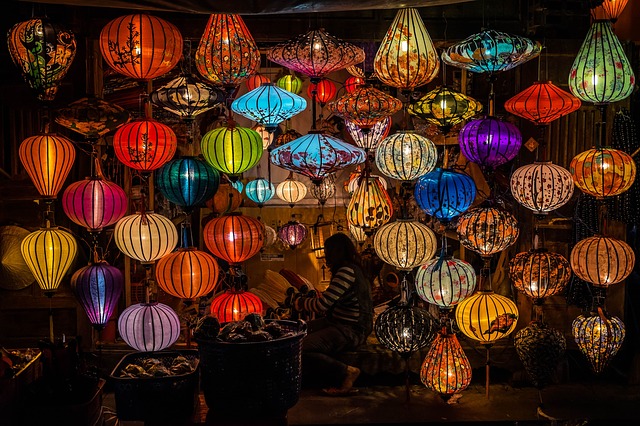


 Involvement Volunteers International
Involvement Volunteers International 